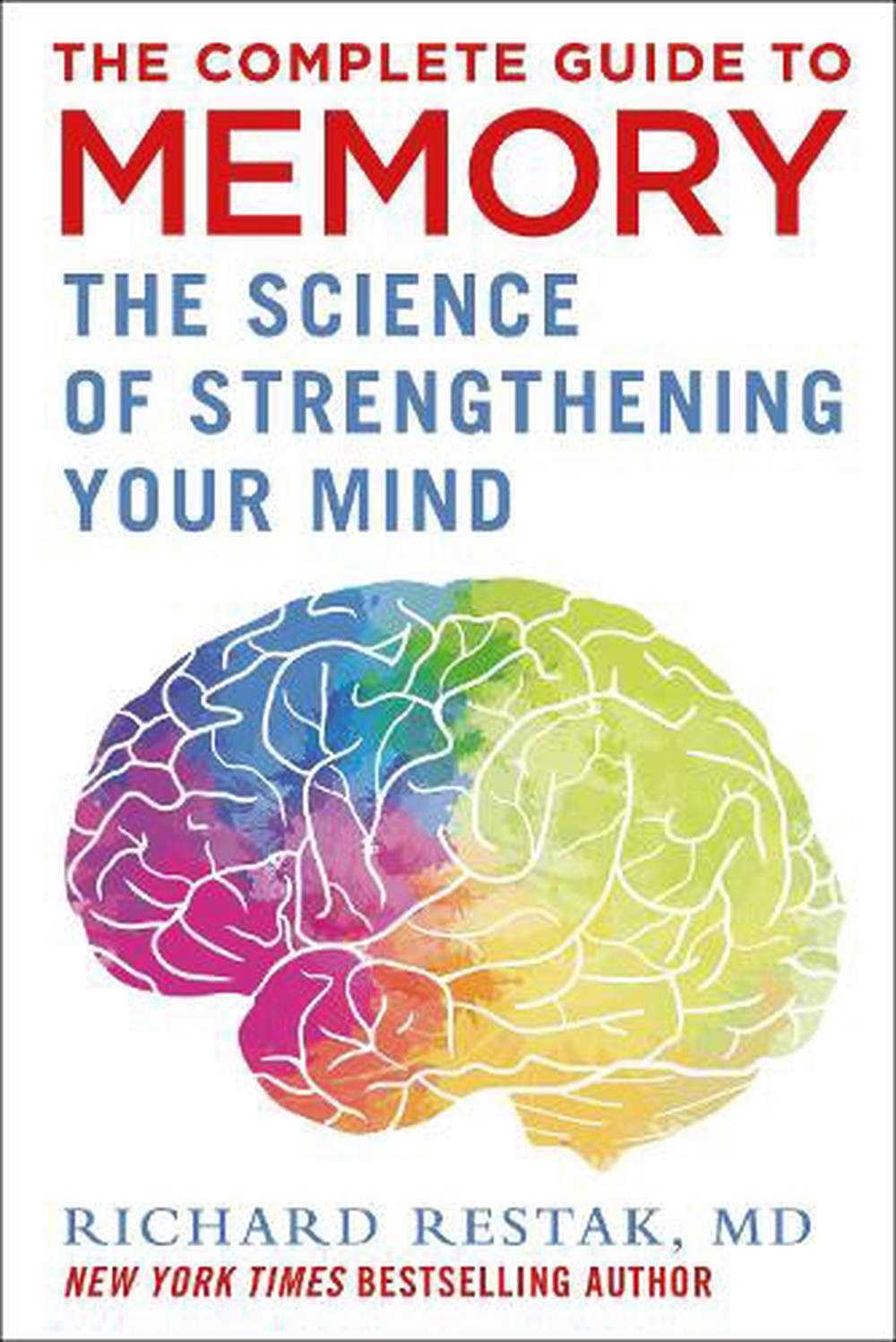
26 August 2022
Neurologist and neuropsychiatrist Dr Richard Restak is a fellow of the American Neuropsychiatric Association and he has written more than twenty books on matters relating to the human brain. His most recent book is “The Complete Guide to Memory: The Science of Strengthening Your Mind” which focuses on fears that every time you can’t remember where you put something, it could be a sign of doom.

His book describes how in the U.S. “anyone over 50 lives in dread of the big A.” Memory lapses are the single most common complaint over-55s raise with their doctors, even though much of what they describe turns out to be nothing to worry about”.
Have you ever walked into a room and can’t remember what you went in for or met an old acquaintance and forgot their name. Some have experienced momentary memory lapses like this and thought, could it be a sign of dementia onset. The good news for the increasingly forgetful is that not only can memory be improved with practice, it looks increasingly that some cases of Alzheimer’s may be preventable.
Forgetting where you left the car is perfectly normal and it’s likely you weren’t concentrating when you parked and the car’s location wasn’t properly encoded in your brain. Forgetting what you came into a room for is probably just a sign you’re busy and preoccupied with other things suggests Dr Restak.
“Samuel Johnson said that the art of memory is the art of attention,” and Dr Restak thinks “Most of these sins of ‘memory loss’ are sins of not paying attention. If you’re at a party and you’re not really listening to someone, because you are still thinking about some work-related matter, suddenly later you find you can’t remember their name. The first thing is you put the information in memory – that’s consolidating it – and then you have to be able to retrieve it. But if you’ve never consolidated it in the first place, it doesn’t exist.”
But what if you forget where you left your car keys, and eventually find them inside the fridge? “That’s often the first sign of something serious – you open up the refrigerator door, and it’s the newspaper, or your car keys, inside. That’s a little bit beyond forgetful.”
Memory does vary, he points out, and some people will always have been scatty. But the real red flag is a change that seems out of character. If you’re a keen card player who prides yourself on always keeping track of which cards have been played, and suddenly realise you can’t do that any more, it could be worth investigating. Similarly, Dr Restak has noticed that many patients in the early stages of dementia stop reading fiction, because it’s too difficult to remember what the character said or did a few chapters earlier – which is unfortunate, he says, because reading complex novels can be a valuable mental workout in itself.
Like following a recipe, keeping track of fictional plots is an exercise of working memory – as distinct from short-term memory (temporarily storing something like a phone number that you can safely forget the minute you’ve dialed it) or episodic memory, which covers things like recollections of childhood. Working memory is what we use to “work with the information we have” and it’s the one we should all prioritise. Left to its own devices, he points out, memory naturally starts to decline from your 30s onwards, which is why he advocates practising it daily.
The book book describes games, tricks and ideas for honing recall, often involving creating vivid visual images for things you want to remember. He holds a mental map of his neighbourhood in his head, incorporating visually familiar landmarks – his house, the local library, a restaurant he often goes to – and for each item on a list he wants to remember, he will create a memorable visual image and attach it somewhere specific on the map. To remember to buy milk, bread and coffee later, for example, he might envisage his house transformed into a carton of milk, the library full of loaves rather than books, and a giant cup of coffee spilling out of the restaurant.
The book also touches on broader lifestyle advice. Recently, research from the Lancet’s commission on dementia suggested up to 40% of Alzheimer’s cases could be prevented or delayed – much like heart disease and many cancers – by limiting 12 risk factors, from smoking to obesity and heavy drinking.

Dr Restak advises his patients to quit alcohol by age 70 at the latest. Over 65, he writes, you typically have fewer brain neurons than when you were younger, so why risk them? “Alcohol is a very, very weak neurotoxin – it’s not good for nerve cells.”
He is also an advocate of the short afternoon nap, since getting enough sleep helps brain function (which may help explain why sleep-deprived new mothers, and menopausal women suffering from night sweats and insomnia, often complain of brain fog).
More unexpectedly, he recommends tackling hearing or vision problems promptly, because they make it harder to engage in conversations and hobbies that keep the cogs turning. “You have to have a certain level of vision to read comfortably, and if that’s missing then you are going to read less. As a result of that, you’re going to learn less and be a less interesting person to other people. All of these things really come down to socialisation, which is the most important part of keeping away Alzheimer’s and dementia, and keeping your memory.”
Dr Restak argues, memory is intrinsic to who we are. It binds families and couples together, as we reminisce about our shared past. For individuals, meanwhile, past experience gives life meaning and texture. “We are what we can remember. The more things you can remember, the more clearly, the more full and enriched our personalities,” says Restak, who argues that the personalities of dementia sufferers can become flatter and more attenuated. “People say ‘Oh, they don’t seem to be the same person.’” Perhaps that’s why we fear Alzheimer’s so much: memory is so closely allied to a sense of self.
If someone you love has Alzheimer’s, Dr Restak suggests, don’t upset them by constantly challenging mistakes or memory lapses; instead, meet them where they are now. What are they still interested in and talk about that, work with that, because a lot of things stay within normal range even with a pattern of dementia. You shouldn’t just look upon it as a hopeless situation, although it’s a very frustrating one and it’s very sad. Where a flicker of memory remains, perhaps there is hope.